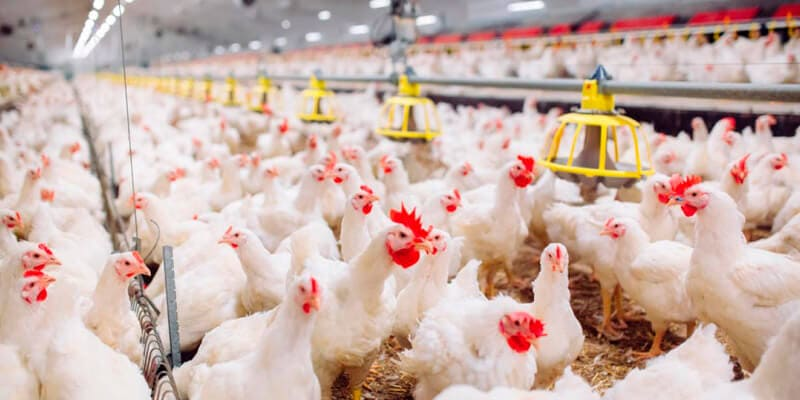Geothermal innovation heats up ‘green’ poultry farming

A hybrid geothermal and solar heating, ventilation and air conditioning system is being specifically developed for the poultry industry, which could dramatically reduce emissions and energy costs for poultry farms.
Behind the innovation is the University of Melbourne, together with geothermal companies Ground Source Systems and Fourth Element Energy, while the project is being funded through a AUS$318,000 grant from the Australian Renewable Energy Agency (ARENA).
This project aims to demonstrate how the energy demands of poultry sheds can be coordinated with on-site renewable energy production, which not only translates into environmental benefits but also economic benefits for farmers.
The system includes a ground-source (geothermal) heat pump system and full-scale solar photovoltaic system with gas back-up, which can supply the heating, ventilation and air conditioning needs of poultry farms.
Later this year, the first stage of the project will see a demonstration, full-scale hybrid system installed and optimised for efficiency at a commercial poultry farm, Bargo, in Yanderra, NSW.
University of Melbourne Professor Guillermo Narsilio said the collaborators have identified 827 poultry farms across Australia that meet the conditions needed to transition to hybrid geothermal and solar energy.
“Australia is in an ideal position to lead the development of this technology and reap the benefits in several intensive farming sectors,” said Narsilio, adding that the country has ideal solar conditions, and the space to install geothermal systems. “If we can achieve 15-20% market uptake in the Australian poultry industry, it would reduce at least one tenth, or 160,000 tonnes of the industry’s greenhouse gas emissions.”
With 100% uptake, the team estimates the new system could reduce the sector’s total greenhouse gas emissions by around one million tonnes (CO2-e) from 1.8 million tonnes to 0.8 million tonnes per annum.
Arena CEO, Darren Miller, said the project is expected to provide an important case study to drive uptake across the sector, saying that heat pumps represent a viable alternative to traditional heating. Director of Ground Source Systems, Brad Donovan, said the team will produce a public report that sets out a clear cost-benefit analysis for poultry farmers, but the team indicates that the hybrid energy costs for farmers would be between 75 and 90% less than existing systems, subject to the farm operation method, with installation costs likely to be fully recovered within 3-6 years.
Read also
Wheat in Southern Brazil Impacted by Dry Weather and Frosts
Oilseed Industry. Leaders and Strategies in the Times of a Great Change
Black Sea & Danube Region: Oilseed and Vegoil Markets Within Ongoing Transfor...
Serbia. The drought will cause extremely high losses for farmers this year
2023/24 Safrinha Corn in Brazil 91% Harvested
Write to us
Our manager will contact you soon



